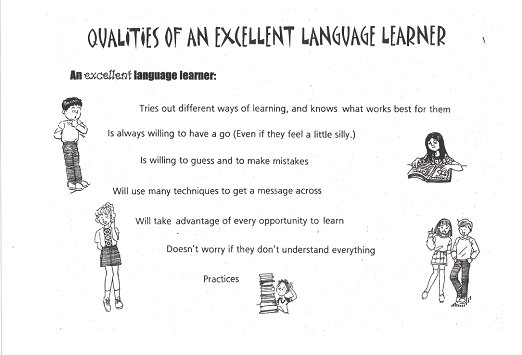WHY STUDY A LANGUAGE
Studying a language has an impact on children’s intellectual development. Extended language learning gives deeper knowledge of the structures and processes of communication. For most learners, it expands their knowledge of their first language.
It also:
• Helps develop an appreciation for culture and language other than one’s own
• Builds confidence and encourages risk-taking in communication
• Enhances and refines communication skills of listening, speaking, reading and writing, by focusing on each skill
• provides an opportunity for students to participate more fully in a global community
• Increases opportunities for travel and making friends around the world.
Many studies show the positive effects learning a second language has on the cognitive development of students, even in other areas such as mathematics and reading. Studies also show that second language has a special contribution to make for students who struggle with English, with a focus on the structure and patterns of language.
PREPARING STUDENTS FOR THE FUTURE
Learning a second language can give a great ‘edge’ to students in the future in a competitive workplace. Even if Japanese is not the language needed for a particular job, the process of learning a language will enable other languages to be learnt more easily.
The world is ever changing. Students need to have a range of skills to prepare them for the future.
Jobs where languages give you an edge
Web design
Jobs in multi-national corporations (e.g. AXA, Microsoft)
Jobs in companies with ties to another country (e.g. Mitsubishi, Sony)
Hospitality (Guest liasing in an international company hotel,
Chef or cook in an international restaurant)
Tour guides
Translators/interpreters (always needed in courts, hospitals, international
conferences, etc.)
Teaching
Subscribe to:
Post Comments (Atom)



No comments:
Post a Comment